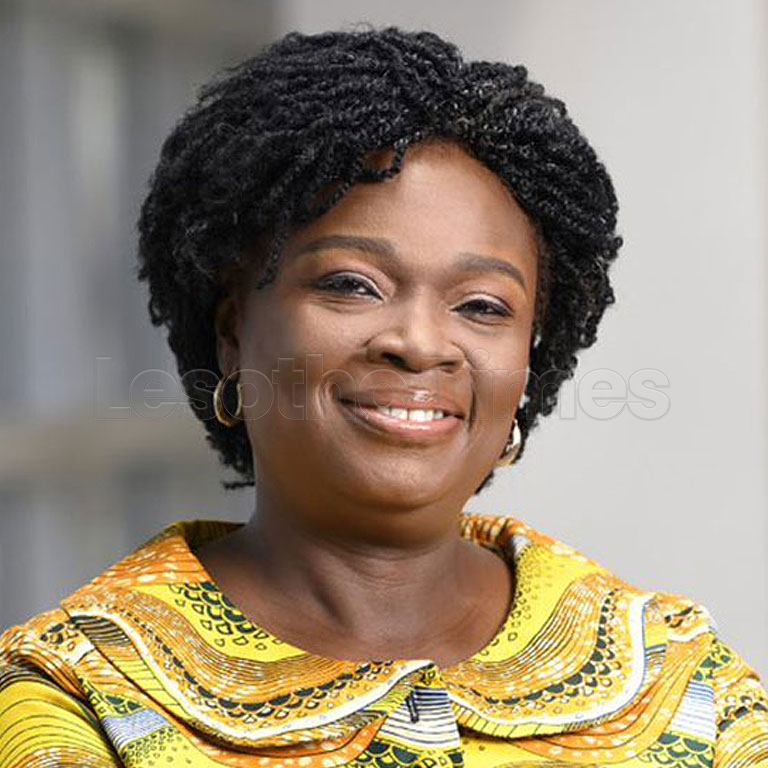Tokelo Khausela
The World Bank’s Regional Vice President for Eastern and Southern Africa, Victoria Kwakwa, was in Lesotho this week to assess progress in projects funded by the bank.
Dr Kwakwa and her team paid particular attention to the Lesotho Entrepreneurship Hub and Seed Financing Facility (LEH SFF) which falls under the Competitiveness and Financial Inclusion project (CAFI) in the Ministry of Trade, Industry, and Business Development.
The project is a beneficiary of World Bank financing.
Dr Kwakwa and her team visited exhibitions by small and medium scale enterprises (SMMEs) at CAFI offices at Fairways Plaza in Maseru on Monday and Tuesday. Among the CAFI beneficiaries present were the Limkokwing University’s LEAP, National University of Lesotho’s Innovation Hub, Black Hair and Leathersole and Supplies among others.
The CAFI Project was incepted in September 2022 through the financial aid of the World Bank but only became operational in April 2023.
The CAFI Project Manager, Chabana Mokuku, said the project’s objective was to increase access to business support services and finance to SMMEs and entrepreneurs, especially women and youth.
“This project was built on the successes of the previous projects financed by the World Bank whose main aim was to build a private sector in Lesotho through improving the business environment and harnessing diversity of resources for growth,” said Mr Mokuku.
“We are working with private institutions to come up with innovative financing products which will help businesses as well as the Central Bank of Lesotho to improve our credit financial structure.”
The Minister of Trade, Industry and Business Development, Mokhethi Shelile, said the CAFI project was a vital step towards creating employment opportunities and fostering sustainable economic growth.
“It is a step towards creating an entrepreneurship culture in Lesotho, enabling our people to compete in globalization processes and participate in regional systems,” Mr Shelile said.
He said the project had enabled the government to effectively tackle challenges brought about by the Covid-19 pandemic.
“The timing of the launch of the CAFI bank funded project in 2023 could not have come at an opportune time…,” he said.
Mr Shelile said prior to the outbreak of Covid-19 Lesotho’s economy was already fragile and the shocks and negative impact of the pandemic had worsened the situation. The lockdowns had a detrimental impact on global value chains resulting in losses in tourism, hospitality, transport and logistics.
“Retrenchments and business closures caused massive increases in the unemployment rate, the weak conditions in economic markets especially the United States and South Africa resulted in significant decline in demand for textile garments exports. We have lost so much in that sector,” Mr Shelile said.
He said the ongoing Russia/Ukraine war and the new conflict in Gaza were impeding the much-needed economy recovery that was initially anticipated after the end of the Covid-19 pandemic.
For her part, Dr Kwakwa said it was a pleasure to see so many exhibitors at the event. She said it proved that it was possible to evolve from an economy that was dominated by the public sector and state-owned enterprises to an economy driven by the private sector, entrepreneurship and ideas.
“We should thank you for your efforts; the outcome of the program is exceptional and it is a privilege for us as a development institution to have this opportunity to work with you,” Dr Kwakwa said.
She urged all stakeholders to challenge themselves to do more for the betterment of the country.


